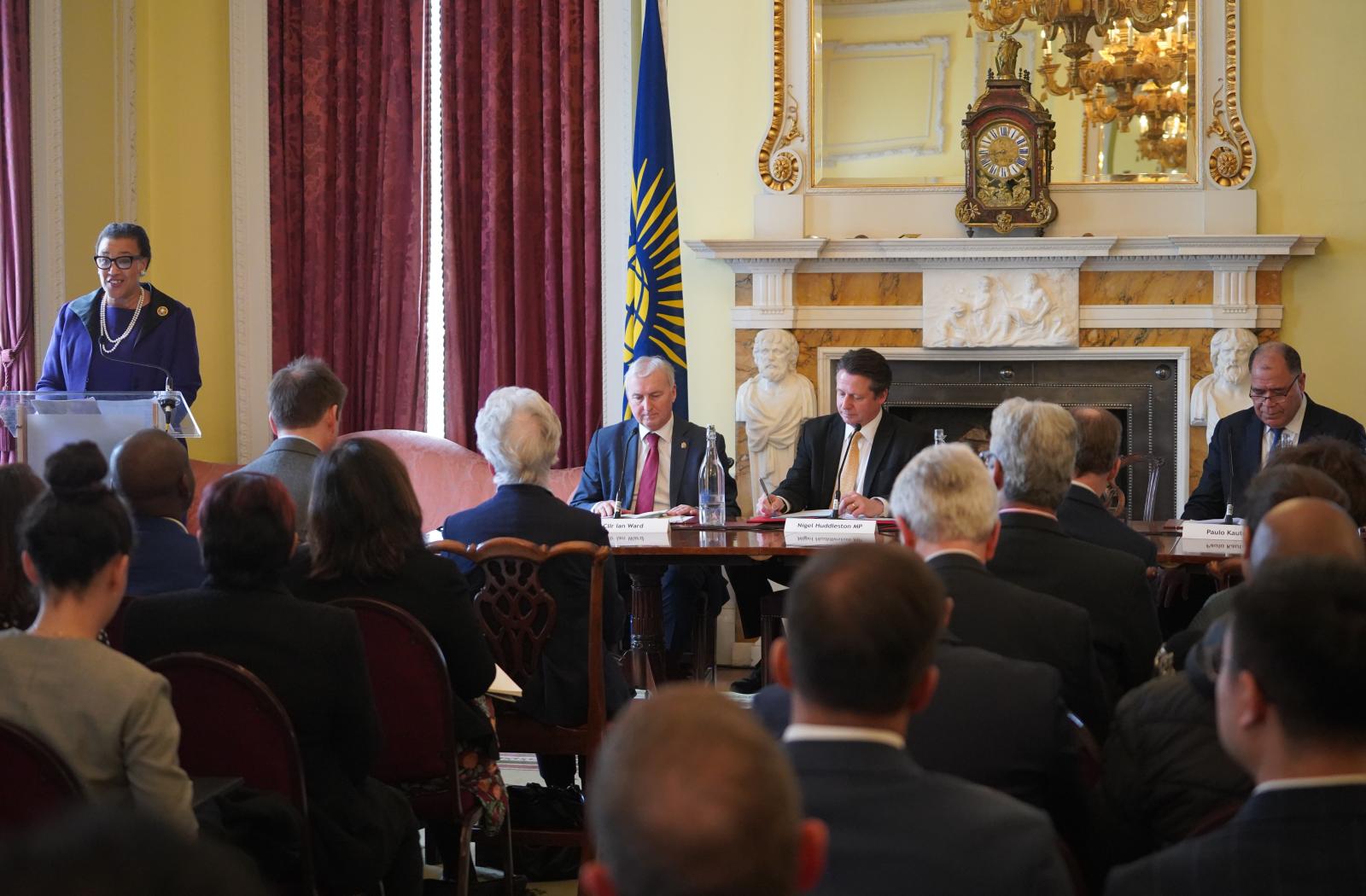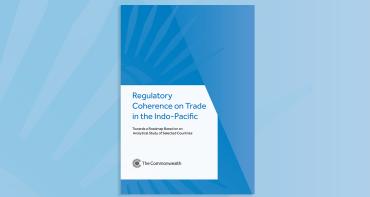This week, the Commonwealth Secretariat’s International Trade Policy team in partnership with The UK Department for Business and Trade held an event to reflect on the legacy of the Commonwealth Games and how businesses can continue to build on the relationships forged throughout the Games and the trade and investment opportunities available for businesses.

The Birmingham 2022 Commonwealth Games was the biggest sporting event in the UK in a decade and attracted over five million people to the city centre from across the Commonwealth. The Business and Tourism Programme as part of the Games sought to create opportunities to connect with Commonwealth nations and territories and establish more resilient bilateral trading relationships between the UK and the other Commonwealth member countries.
In her opening remarks at the event titled ‘The 2022 Birmingham Commonwealth Games: Assessing the Business and Trade Dimensions’, the Commonwealth Secretary-General Rt Hon Patricia Scotland KC said:
“Sport makes an enormous contribution to strengthening the economic, social and cultural bonds of the Commonwealth. Through sport, we can boost trade and investment, and advance progress on broader Commonwealth priorities, including peace and security, prosperity, and sustainable development.
We should remind ourselves how unique it is that every four years, our extended global family is able to come together in a world-class sporting competition, and in doing so we are able to reinforce the values which bind us and enhance the practical advances which Commonwealth membership offers.”
Attendees heard from distinguished speakers about the impact of the Games in the UK and the West Midlands, including from the UK Minister of State for International Trade, Nigel Huddleston and Cllr Ian Ward, Leader of Birmingham City Council.
Speaking at the event, Minister Huddleston said:
“The games will live on for years in the minds of the people of Birmingham, the people of Britain and people right across the Commonwealth, and certainly in my own memory. It was the largest Commonwealth Games in history with more than 6,000 competitors. The games weren’t just great, they were also green, the first carbon-neutral games. Together we achieved something very special, something that will leave a lasting legacy… The games will leave behind a rich legacy of economic success too, they have boosted the West Midlands Economy by more than £400 million, creating 9000 new jobs at a time of great economic pressure for British families.”
Many Commonwealth countries benefit from practical similarities: in language, common law, regulatory coherence, business procedures, and large and dynamic diaspora communities. The ability to leverage these similarities means that, although the Commonwealth isn’t a formal trading bloc, trade costs between Commonwealth countries are 21 per cent lower, on average, compared to trading with non-Commonwealth members.
In her remarks, Secretary-General Scotland reinforced just how advantageous Commonwealth membership is for trade and investment, noting that the Secretariat is working to build and enhance opportunities. She highlighted the work of the Commonwealth Connectivity Agenda; the support provided to member countries on trade policies and competitiveness; through our support for the private sector, in practical initiatives such as the Intra-Commonwealth SME Association, the Small States Trade Finance Facility and the Business Forum at Commonwealth Heads of Government Meeting.
Media contact
- Rena Gashumba Communications Adviser, Communications Division, Commonwealth Secretariat
- T: +44 7483 919 968 | E-mail



